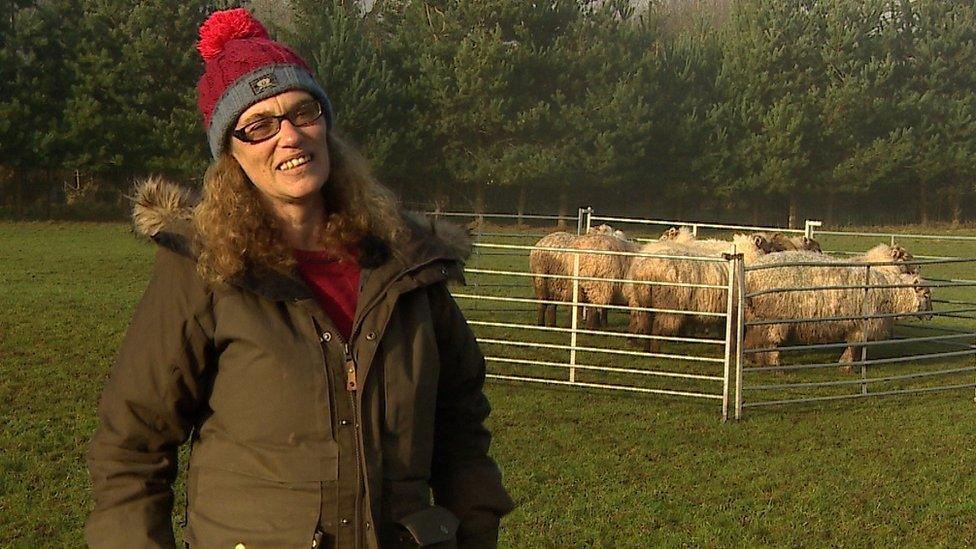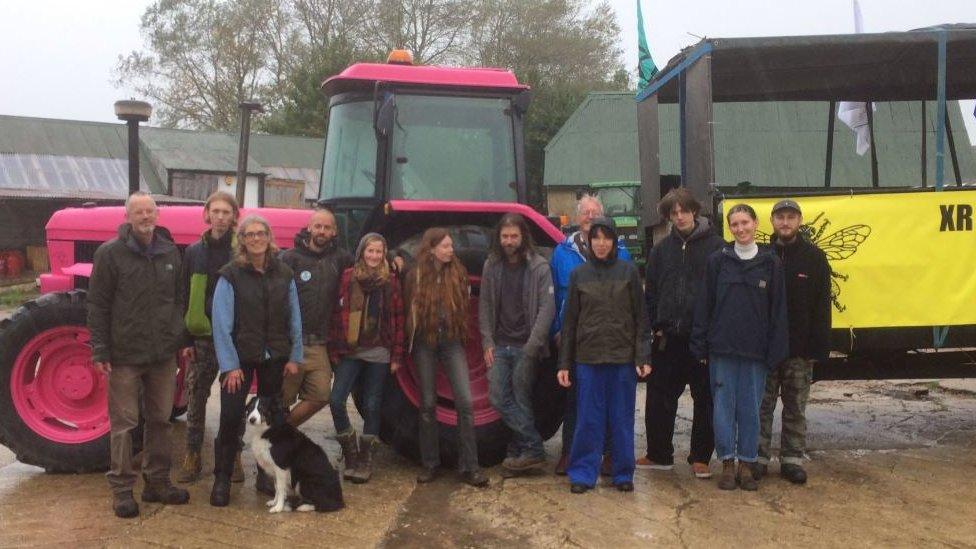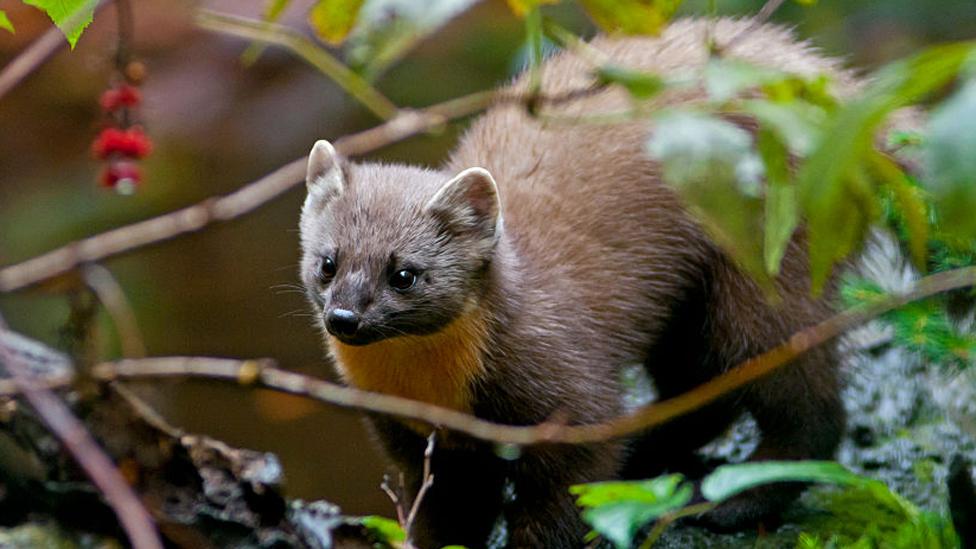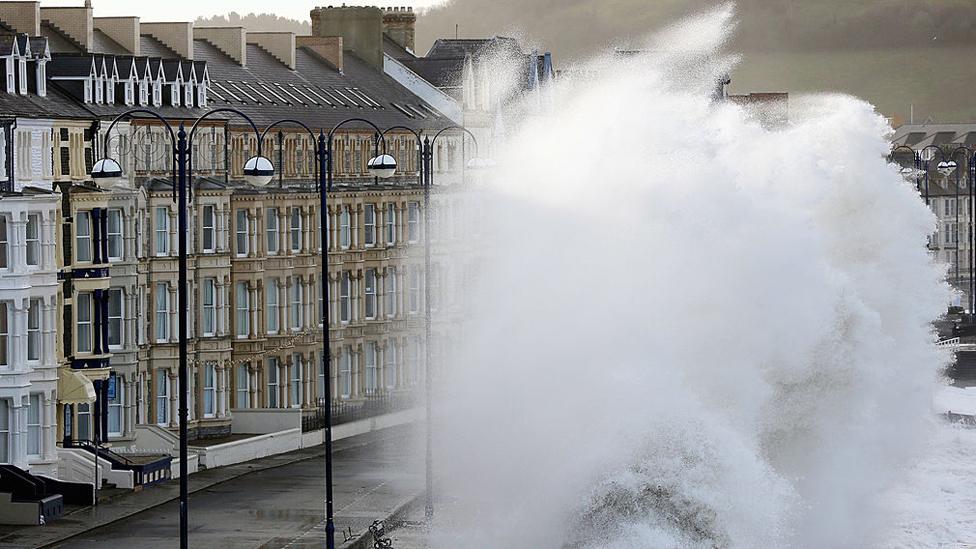Climate change: 'Eat locally produced meat to save planet'
- Published

Sarah Shuffell set up the XR Farmers group after becoming "fed up of farmers being blamed" for global warming
Consumers do not need to give up meat to help combat climate change, the founder of Extinction Rebellion Farmers group has said.
Instead shoppers should choose local, sustainably-produced food over imports, Sarah Shuffell claimed.
In August, UN experts said high consumption of animal produce in the West was fuelling global warming.
Ms Shuffell said climate change talks often lumped in small farmers with intensive, large-scale producers.
She decided to set up the XR Farmers group after becoming "fed up of farmers being bashed and blamed left, right and centre" for global warming.
The group describes itself as "crop and livestock farmers who are pressing government to restore biodiversity and achieve net zero greenhouse gases".
'Intensively grown vegetables won't save the planet'
Ms Shuffell, who lives near Brecon in Powys, claimed it was industrial-scale, environmentally damaging farm practices in places such as the US that had led to calls for people to give up meat entirely - and Welsh farmers were well-placed to help tackle the problem.
"It's not as simple as saying 'meat bad, plants good' - it depends on your system. Intensively grown vegetables with high amounts of fertilisers and pesticides won't save the planet.
"We need to be thinking about where our food comes from and valuing what we grow in this country. Instead of importing food, we should become more sustainable and self-sufficient."

Sarah Shuffell, third from left, with members of XR Farmers and the pink tractor she supplied for protests
She decided to talk to Extinction Rebellion about how farmers could mitigate against climate change to "open up a much more healthy debate about our food system".
"We've got lots of small, family farms here in Wales, [which] are the way forward - it's those that can adapt, and they often have systems that are much more friendly to nature and the environment," she said.
In Wales, about 80% of agricultural land is designated as "less favoured" because it has poor quality soil and hilly geography unsuited for growing crops.
It means the sector is largely made up of smaller livestock farms rearing sheep and cattle on grassy fields, which "capture carbon and draw that down into the soil", Ms Shuffell said.
Government advisers at the UK committee on climate change, external are preparing to publish a major new report on Thursday about agricultural policy and how land should be used to reach greenhouse gas emission reduction targets.
Caryl Roberts, head of operations for the Farmers' Union of Wales, said: "Our farmers have much more in common with those who want to save the environment than people think.
"They are really in tune with the land around them and what they produce to make sure that land passes on to the next generation. I can't see a more sustainable way of eating than that."
- Published7 November 2018

- Published18 December 2019

- Published20 September 2019
